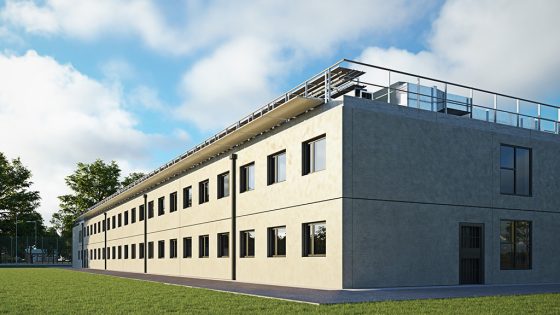ISG’s collapse will add between three and 18 months to the programme for the prisons it was working on, according to Ministry of Justice (MoJ) estimates.
The MoJ’s modelling has been revealed in a National Audit Office (NAO) report on increasing capacity in the prison system.
The department also said the stoppage of work on sites should not delay the government’s latest prison expansion timetable.
ISG was the MoJ’s contractor on 17 per cent of its prison expansion portfolio, amounting to 3,634 places.
According to the NAO, the ministry believes this will delay some projects by three to 18 months – based on scenario modelling it carried out prior to the contractor’s administration – but does not “currently” expect the 2031 target for completing the 20,000 places to be pushed back as a result.
However, the MoJ said it would further review its estimates in the wake of ISG’s collapse.
Three of the prisons it was awarded had either not been started or had only begun early works in the summer, and so should not be delayed too significantly, the report noted.
The report said that under the previous government, the MoJ aimed to increase prison places by 20,000 by the mid-2020s.
Between 2020 and September 2024, however, it delivered just 6,518 extra places.
Most of the prison expansion programme was delayed due to factors such as weaknesses in governance and the setting of overambitious targets, the NAO said. For example, the MoJ announced a target to build six new prisons by the mid-2020s, despite not having planning permission for three of them by 2021.
The additional 20,000 places are now expected to be provided by 2031, five years later than planned.
“The current crisis in the prison estate is a consequence of previous governments’ failure to align criminal justice policies with funding for the prison estate, leading to reactive solutions which represent poor value for money,” the NAO said.
“Policies such as introducing tougher sentences and increasing the number of police officers led to steep increases in expected demand for prison places. However, years of under-investment in maintaining the prison estate put MoJ and HMPPS [His Majesty’s Prison and Probation Service] in a weak position to respond to these increases.”
The costs of the expansion are now expected to be between £9.4bn-£10.1bn, at least £4.2bn above the original estimates in 2021, partly due to 40 per cent cost inflation in the construction sector.
The cost of modular “rapid deployment cells”, which were due to provide 1,000 extra places by 2022, has risen by 250 per cent since the MoJ drew up its initial business case for them. Rollout of the units, which have a 15-year lifespan, are now expected to be completed in 2026.
The spending watchdog also warned that in the next few years there will be continued risk to the capacity in prisons, because of the poor condition of parts of the estate.
A quarter of prison places do not meet fire safety standards and HMPPS’s backlog of maintenance works has doubled to £1.8bn from £0.9bn in the past four years. HMPPS estimates it would cost £2.8bn over the next five years to bring the whole estate into a “fair” condition, more than double its current maintenance expenditure.
Elsewhere, deputy prime minister Angela Rayner has overturned a council decision to reject permission for a 74,500 square metre prison in Ulnes Walton, Chorley, Lancashire.
Chorley Council’s planning committee said in December 2021 that the prison would encroach on open countryside, put pressure on the area’s transport infrastructure, and be too noisy for the surrounding residential areas.
But Rayner said this week that the harm to the greenbelt and other concerns were “clearly outweighed” by the benefits of the project and the need for prison space and that “very special circumstances exist which justify approval” of building in the countryside.

